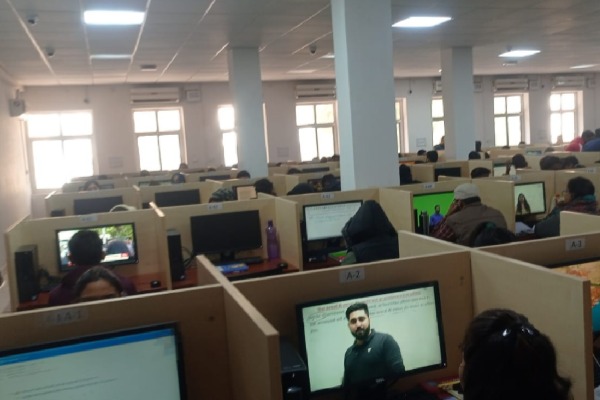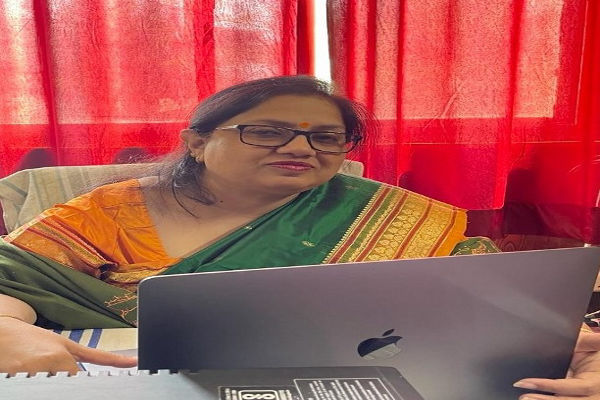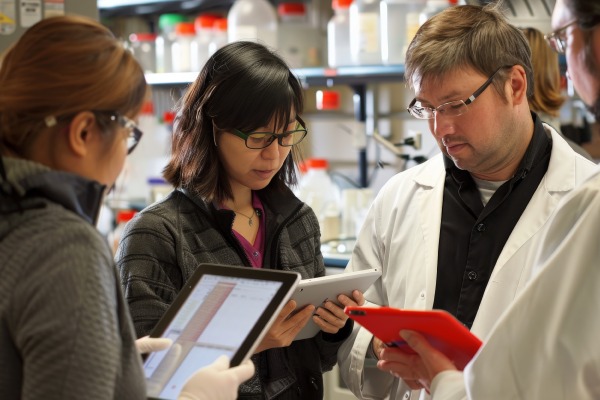
B.Pharmacy in India - Is It the Right Career Path for You
The Indian healthcare and pharmaceutical industries are thriving, necessitating a steady requirement for professional pharmacy personnel. A Bachelor of Pharmacy (B.Pharm) provides students with skills in drug development, medicinal chemistry, and pharmacology—alien to none for careers in drug production, clinical research, regulatory affairs, and beyond.
But students always wonder: Is B.Pharmacy a good career in India? Yes—if you complete the course from a prestigious institution and choose it according to your interests and future prospects.
Whether you want to pursue a job in hospitals, multinational pharma firms, or government regulatory agencies, B.Pharmacy provides a solid grounding. One of the best ways to start your pharmacy career is at Dr. M.C. Saxena Group of Colleges, well-known for industry-oriented education and placement assistance. Let's read it out!
Table of Contents
- Why Choose B.Pharmacy?
- B.Pharmacy Job Roles in India
- Government and Private Sector Careers
- Salary Insights in the Pharmacy Field
- Higher Education and Career Growth
- Trends Reshaping the Pharmacy Industry
- Start Your Journey with Dr. M.C. Saxena Group of Colleges
- Frequently Asked Questions About Career in B.Pharma
1. Why Choose B.Pharmacy?
B.Pharmacy is a professional undergraduate course that prepares students for careers in healthcare and the pharmaceutical industry. It includes practical and theoretical knowledge in drug design, testing, production, and distribution.
- India ranks 3rd in global pharmaceutical production by volume.
- India's pharmaceutical sector is growing very fast, providing ample career options for B.Pharm graduates. Worth an estimated $120–130 billion by 2030, the industry will create as many as 58,000 new jobs in 2025.
- India exports pharmaceuticals to more than 200 nations, according to IBEF.
Students who are interested in biology, chemistry, and patient care tend to find this course very interesting and career-providing.
2. B.Pharmacy Job Roles in India
The pharmacy field offers a range of career options across sectors. Popular B.Pharmacy jobs in India include:
|
Job Profile |
Description |
Average Salary (INR) |
|
Pharmacist |
Dispenses medications and advises patients. |
2.8 LPA |
|
Drug Inspector |
Ensures quality and safety of drugs in compliance with regulations. |
2.8 LPA |
|
Clinical Researcher |
Conducts trials and research studies for new drugs. |
4.5 LPA |
|
Hospital Pharmacist |
Manages medication supply within hospital systems. |
2.5 LPA |
|
Chemical Technician |
Supports chemists in formulation and testing. |
3.8 LPA |
|
Medical Representative |
Markets pharmaceutical products to healthcare professionals. |
3.6 LPA |
|
Medical Writer |
Prepares scientific and regulatory documentation. |
5.8 LPA |
|
Pharmacologist |
Studies drug interactions and efficacy. |
3.6 LPA |
Source: Ambitionbox.com
3. Government and Private Sector Careers
Government Sector:
- Drug inspectors and pharmacists in government hospitals
- Research officers in central laboratories
- Public health program managers
Private Sector:
- Production & Quality Control Executives in pharma companies
- Clinical data managers in research organizations
- Regulatory affairs experts in MNCs
The increase in demand for pharmaceutical professionals is underpinned by national health programs and greater private healthcare investments.
4. Salary Insights in the Pharmacy Field
B.Pharmacy pay varies by experience, location, and employer-dependent. Here's a snapshot:
- Beginning: ₹2.5–₹3 LPA
- Mid-level: ₹4–₹5 LPA
- Senior-level: ₹6–₹7+ LPA
- Premier roles in MNCs or government can command ₹60,000/month or more
Those working in metro cities or for global pharmaceutical companies typically have better pay and opportunities for growth.
5. Higher Education and Career Growth
Most B.Pharm graduates pursue further education to take their careers forward:
- M.Pharm: For drug development, formulation, or R&D positions
- Pharm.D: Clinical doctorate with patient care orientation
- MBA in Pharmaceutical Management: For pharma operations leadership
- Public Health or Clinical Research: For NGO, research, and epidemiology roles
These courses provide diversification of job opportunities and greater salary potential.
6. Trends Reshaping the Pharmacy Industry
Staying updated with emerging trends can make B.Pharmacy graduates more competitive:
- Telepharmacy: Providing remote pharmaceutical services
- Pharmacogenomics: Tailoring drugs based on genetic makeup
- AI in Drug Discovery: Automation in pharmaceutical R&D
- Digital Health: Mobile apps for medication management
- Green Pharmacy: Sustainable drug production
With technology and healthcare converging, pharmacy professionals now play a larger role in personalised and accessible care.
Start Your Journey with Dr. M.C. Saxena Group of Colleges
If you're ready to build a stable and future-proof career in pharmacy, consider enrolling at Dr. M.C. Saxena Group of Colleges. The institution offers:
- Hands-on lab training
- Industry-focused curriculum
- Experienced faculty
- Top-tier placement support
With a strong track record of producing skilled professionals working in top healthcare and pharma companies, this college can help you achieve your career goals.
- Email: atmcscet@rediffmail.com
- Phone: +91 9936052233
Ready to take the first step? Join one of India’s best colleges for B.Pharmacy and secure your place in a thriving industry.
Frequently Asked Questions About Career in B.Pharma
Q1. Is B.Pharmacy worth it in today’s job market?
A. Yes. It offers diverse roles in healthcare, manufacturing, and research with steady growth potential.
Q2. What are the top job options after B.Pharmacy?
A. Pharmacist, Drug Inspector, Medical Writer, Clinical Research Associate, and Pharmacovigilance Expert.
Q3. Are government jobs available after B.Pharmacy?
A. Yes. Positions include Drug Inspector, Hospital Pharmacist, and Research Officer.
Q4. Can B.Pharm graduates teach?
A. Yes. They can apply for science faculty roles in private institutions.
Q5. How competitive is the pharmacy field in India?
A. Moderately competitive, but skilled professionals with further education stand out in the job market





































































